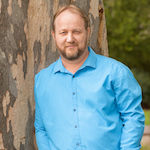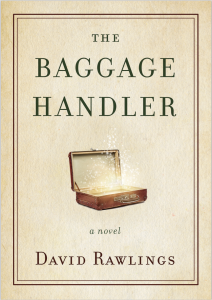by David Rawlings, @DavidJRawlings
I’ve been asked by a few people recently about what you need to master as a writer. They’ve asked if it’s more important to know plot over characters or description over dialog.

The more I’ve been thinking about it, the more I’ve realized that the difference between a writer and author isn’t just a mastery of words. It’s a mastery of time.
I know only a handful of authors who are able to focus on writing, and only on writing. Most of the rest of us have to keep the money coming in and our families fed. That means that the simple act of putting our fingers on keys can be more than the words that drive them as they tap away in the early morning or late at night. It means the issue for some of us – me included – is that we need to be masters of time as much as words.
Please don’t think I’m saying that craft doesn’t count. It absolutely does. But there’s a growing number of writers I speak to whose issue is more that they can’t get around to their story. It’s as much more about the process than principle.
So how do you master (or mistress, to be inclusive) the concept of time as a writer? There are three ideas I’ve picked up on as I’ve been inspired by those writers who are further along the writing journey than me, and I wanted to share them with you.
Emotional energy
I love the advice of James L Rubart when it comes to realizing that not all energy is created equally. I was struggling with juggling a launch of my debut novel, edits to novel #2 and writing novel #3 when I had a mentoring conversation with Jim. His comment helped beyond anything I could have imagined, and I’ve implemented it since.
You can’t treat all energy the same. I have more emotional energy in the mornings, so I dedicate that time to creativity. That’s the time for writing, character development, plot development and throwing myself into a story. I leave editing for later, and marketing for after that.
So here’s the question for you: when are you more emotionally “up”? Is it the morning when you’re fresh and the world around you hasn’t woken yet? Or is it late after all your responsibilities are tucked in at night? Use that time to create.
Available time
I’m a freelance writer with my own business, so I discovered that there are “chunks” of time that are available to me. I don’t always get a four-hour slab of free time with no distractions, but I do get the occasional half-hour of time that sits in my calendar, and so I work out how I can use it to my advantage.
So what I’ve done is break down my tasks to suit that time span. Say I’ve got a small window—I don’t want to deep dive into my story but I will still get something done. If I’ve got a half-hour, then I’ll do thirty minutes of marketing (or write this blog post). I realized that when I drop my daughter at theatre class, I’ve got an hour before I need to pick her up. I can edit two chapters in an hour.
So here’s my question: what times in your calendar could you reclaim for writing (or editing or marketing)?
Rhythms of writing
This is a concept I’ve heard from a number of writers – that they have a natural rhythm in their creative lives, and they make the most of it when it’s flowing in their direction.
If you’re a writer, I’m sure you’ve felt this. When it’s flowing, it’s flowing, and you can’t hold it back. And when it’s not, there is no amount of greasing the wheels that will start that creative engine.
The one thing I’ve taken away from chats with those writers is how they surf the creative wave when it’s there. Obviously, creativity is at the heart of what we do, so we need to maximize it. When this happens for me, I put aside the call of social media or marketing and just milk it for all it’s worth. That might mean I need to do some extra social media tomorrow, but it also means those chapters (or short stories) are the best they can be.
The reverse is also true for me. When it’s not flowing, I move onto something else that’s productive. I’ve coached a writer or two about this – when you’ve got writer’s block, you don’t sit there until you force the block to move. Instead, you write a blog post (about writer’s block if you like) or edit or research or even read. All those things are productive.
So here’s my question: what are your rhythms and how can you work with them?
I’m speaking on managing an author’s workload at the Omega Christian Writer’s Conference in Sydney, Australia in October. I think it’s an important topic, and one writers can get significant benefit from when it comes to helping them craft their stories and putting them out for the world to share. And I’m looking forward to hearing how others are finding (or making) time for their passion and their craft.
If you’d like to share below some of your disciplines, ideas or hacks in recovering a little more time back for your writing, feel free to leave a comment below. I’d love to learn from what you’re doing!
 David Rawlings is a based in South Australia, a sports-mad father-of-three who loves humor and a clever turn-of-phrase. Over a 25-year career he has put words on the page to put food on the table, developing from sports journalism and copywriting to corporate communication. Now in fiction, he entices readers to look deeper into life with stories that combine the everyday with a sense of the speculative, addressing the fundamental questions we all face.
David Rawlings is a based in South Australia, a sports-mad father-of-three who loves humor and a clever turn-of-phrase. Over a 25-year career he has put words on the page to put food on the table, developing from sports journalism and copywriting to corporate communication. Now in fiction, he entices readers to look deeper into life with stories that combine the everyday with a sense of the speculative, addressing the fundamental questions we all face.
His debut novel – The Baggage Handler – hit the shelves in March 2019 and is available where all good books are sold! Books: http://books2read.com/Baggage ~ Website: www.davidrawlings.com.au ~ Facebook: David Rawlings – Author ~ Instagram: davidrawlingsauthor ~ Twitter: @DavidJRawlings

